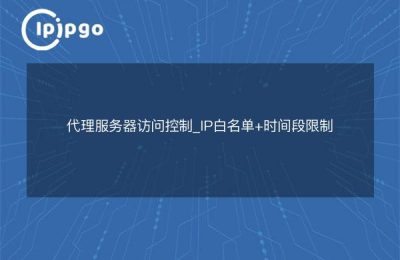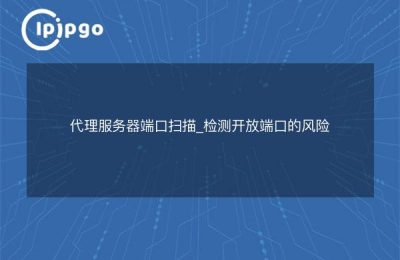
A reverse proxy server is a type of server that sits between the client and the server side and receives requests from the client, then forwards the request to a server in the internal network and returns the server's response to the client. This type of proxy server can help improve network security, performance, and scalability, and thus has an important role in Internet-related applications.
Principles and Applications of Reverse Proxy Servers
The principle and application of Reverse Proxy Server is based on the working principle of proxy server, which realizes the access control and load balancing of internal servers through proxy servers. When a client sends a request, the reverse proxy server will forward the request to multiple internal servers according to certain rules, and then return the obtained result to the client. This way can effectively protect the privacy and security of internal servers, and at the same time accelerate the access speed of clients and improve the overall system availability.
In practice, reverse proxy servers usually play the role of load balancer, by distributing client requests to multiple servers to achieve load balancing of servers. This approach avoids the occurrence of system crashes due to excessive traffic on a single server, thus improving the stability and reliability of the system.
In addition, the reverse proxy server can also perform cache processing to accelerate the access speed of static resources. It can forward the client's request to the cache server, and if there is a corresponding resource in the cache server, it will be returned directly to the client, avoiding the communication with the back-end server and improving the access speed.
Scenarios for using reverse proxy servers
Reverse proxy servers are used in a wide range of scenarios, especially in large-scale Internet applications. For example, in e-commerce websites, reverse proxy servers can realize load balancing and accelerate the access speed of the website, ensuring a better shopping experience for users; in large-scale portals, reverse proxy servers can help distribute traffic to avoid a single point of failure and improve the availability of the website; in mobile application development, reverse proxy servers can help developers in the testing phase of the interface to simulate and debug. simulation and debugging in the testing phase, improving development efficiency.
In conclusion, reverse proxy servers have a very important role in Internet applications, which can improve the performance and stability of the system through load balancing, cache processing, etc., which protects the security of internal servers and also enhances the user experience. Therefore, reverse proxy servers are widely used in the Internet field and will continue to play an important role in the future.








